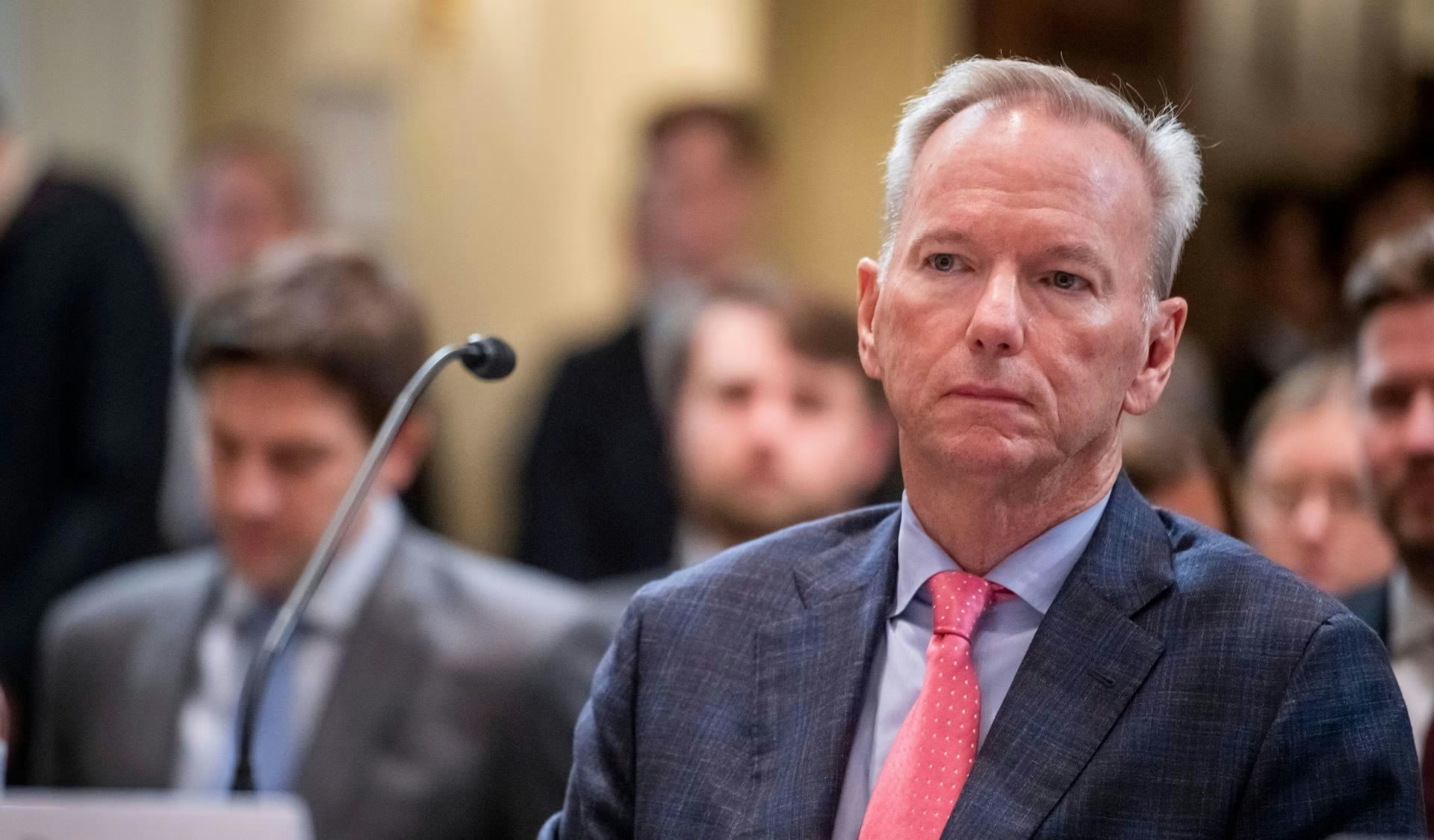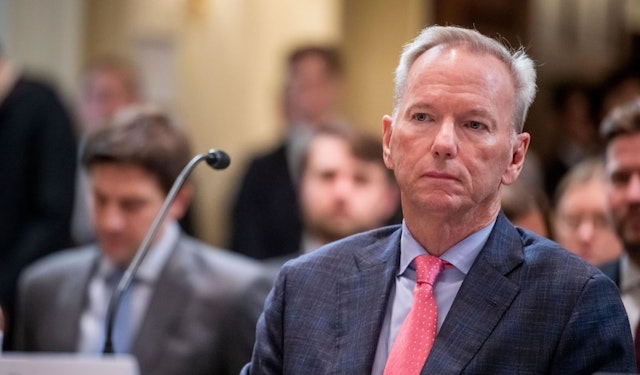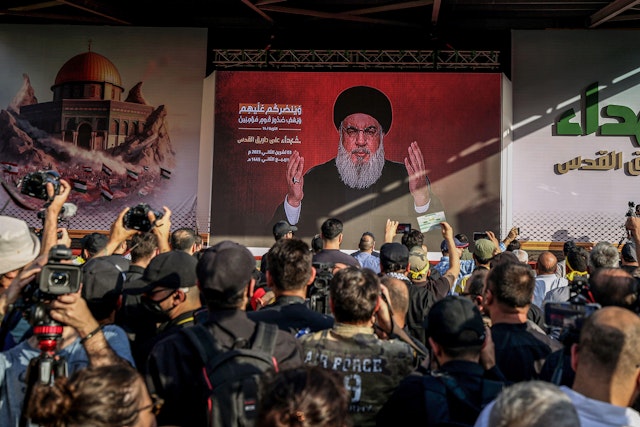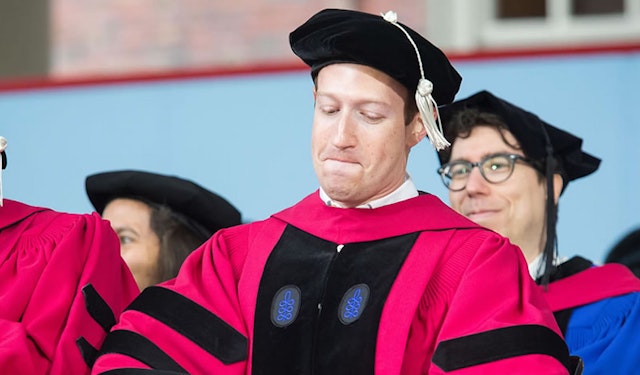Former Google CEO Eric Schmidt, who has spent years stoking fears that China’s effort to develop artificial intelligence technology poses a strategic threat to the U.S., has quietly pursued personal and business connections with China’s AI industry, the Tech Transparency Project (TTP) has found.
In 2019, when Schmidt was heading up the U.S. government’s National Security Commission on Artificial Intelligence (NSCAI) and publicly warning that China was using AI to advance an “autocratic agenda,” his private foundation put $17 million into an investment fund that feeds into Chinese private equity group Hillhouse Capital, which has an extensive portfolio of Chinese AI companies.
At the time of Schmidt’s investment, Hillhouse Capital was known to be closely involved with China’s AI industry, partnering with the state-run Chinese Academy of Sciences on a $150 million AI fund and investing in a Shanghai-based AI firm that develops facial recognition technology used by Chinese police for domestic surveillance.
The investment adds to growing revelations about Schmidt’s China-related investments, which appear to be at odds with his rhetoric about the dangers of China’s AI. Bloomberg News reported last year that another Schmidt foundation held shares in two Chinese tech giants, Tencent Holdings and Alibaba Group, which are both developing AI tools.
Schmidt also appears to have used U.S. government resources to set up personal meetings with key AI players in China, TTP found. In September 2019, a staffer for Schmidt’s private venture fund, Schmidt Futures, asked NSCAI government employees to help identify people that Schmidt could meet with “in a personal capacity” about AI during a trip to China, according to previously undisclosed emails obtained by TTP through a Freedom of Information Act request.
The emails do not reveal what recommendations NSCAI employees made, but Schmidt’s meetings on that China trip included sit-downs with prominent figures in China’s AI industry, including an investor that U.S. lawmakers later accused of backing AI companies that are contributing to human rights abuses and helping to modernize China’s military.
The request for NSCAI assistance in identifying candidates for Schmidt’s personal meetings raises potential ethical concerns. As head of the artificial intelligence commission, Schmidt was a Special Government Employee who is barred from using staff time for personal purposes or using public office for private gain, according to the U.S. Justice Department.
Schmidt’s activities suggest he pursued a two-track approach to China: Warning U.S. policymakers—often in stark, Cold War-style terms—that China’s AI industry poses a competitive and antidemocratic threat, while at the same time pursuing personal and business connections with that same industry.
Schmidt has sparked conflict-of-interest questions for investing in U.S. AI companies as he pushed the U.S. government to boost public funding for AI. TTP’s new findings raise questions about Schmidt’s personal investment strategy in China—a country he has spent years holding up to U.S. policymakers as an AI menace.
Schmidt’s AI-focused Special Competitive Studies Project declined to comment, and Schmidt Futures did not respond to a request for comment.
Stoking Fear
As the chair of NSCAI, Schmidt frequently invoked Chinese AI innovation as a threat. On November 5, 2019, just two weeks before Schmidt traveled to China, the commission released an interim report to Congress in which Schmidt and the panel’s vice chairman, Robert Work, wrote that “developments in AI cannot be separated from emerging strategic competition with China.” They added, “We are concerned that strategic competitors … will employ AI to threaten Americans, our allies, and our values.”
Schmidt went on to make similar warnings in NSCAI’s final report, published in early 2021, in which he and Work wrote that “China’s plans, resources, and progress should concern all Americans.”
After NSCAI’s congressional mandate ended, Schmidt created his own private version of the commission in the form of the Special Competitive Studies Project (SCSP), a play on the Cold War-era Rockefeller Special Studies Project. Former Secretary of State Henry Kissinger lent his name to the project, furthering the Cold War analogy. According to former NSCAI executive director Ylli Bajraktari, Schmidt and Kissinger liked the Rockefeller project model because of its “focus on a competitor.” SCSP hired at least a dozen NSCAI staffers, including Bajraktari, to work for the Schmidt-led initiative, which has maintained a focus on the China threat.
Schmidt frequently stokes fear of China to encourage the U.S. government to invest public funds in emerging technologies. In a 2021 op-ed calling for more public-private partnerships on tech, Schmidt wrote:
"AI and other emerging technologies are central to China’s efforts to expand its global influence, surpass the economic and military power of the US, and lock down domestic stability. China is executing a centrally-directed systematic plan to extract AI knowledge from abroad through espionage, talent recruitment, technology transfer, and investments."
Schmidt repeated the point in May 2023 testimony before the U.S. House Select Committee on the Chinese Communist Party, arguing that AI is “at the center of this competition” between the U.S. and China and describing the stakes as no less than “the future of free societies, open markets, democratic governments, and a world order rooted in freedom, not coercion.”
Schmidt has also leveraged China fears to support his view that the U.S. government should avoid regulating AI. In a December 2021 interview, Schmidt argued that regulation of AI technology would cost American companies their advantage in the AI arms race with China:
"Why don’t we wait until something bad happens and then we can figure out how to regulate it — otherwise, you’re going to slow everybody down. Trust me, China is not busy stopping things because of regulation. They’re starting new things."
When some tech executives and researchers proposed a six-month pause on developing new generative AI models last year, Schmidt opposed the move, saying the moratorium would “simply benefit China.”
China Investments
Even as Schmidt stirred up fears about China’s AI initiatives, his foundation invested in a fund with deep connections to the country’s AI industry.
Tax filings show that the Eric and Wendy Schmidt Fund for Strategic Innovation, a nonprofit controlled by Schmidt and his wife, invested nearly $17 million in a fund called Gaoling Feeder Ltd in 2019. This is a so-called feeder fund, an investment vehicle that pools capital and invests it in a master fund. The master fund in this case is operated by Chinese private equity firm Hillhouse Capital, which invests extensively in AI companies in China.
The master fund’s investments include Alibaba, the Chinese e-commerce giant that has developed AI tools, including a facial recognition technology that it says can detect faces of Uyghurs and other ethnic minorities; Tuya, a Chinese AI-driven “Internet of Things” company that U.S. senators sought to sanction as a national security threat due to its data sharing obligations with the Chinese government; and Baidu, the Chinese search giant whose chatbots have reportedly been used by China’s military to train its AI systems. (Baidu has denied any affiliation with the project.)
Hillhouse Capital has other investments that implicate the company in human rights abuses in China. The firm led a $55 million investment round in Yitu Technology, a Chinese AI company the develops facial recognition technology used by the Chinese Ministry of Public Security. The founder of another startup in Hillhouse’s portfolio previously worked for a company that was placed on a U.S. Treasury Department blacklist for its role in the government oppression in China’s Uyghur Muslim population.
In 2016, Hillhouse partnered with the state-run Chinese Academy of Sciences to launch a $150 million AI fund. Hillhouse Capital founder and CEO Zhang Lei is also closely associated with AI research in China, having funded the Gaoling School of Artificial Intelligence at Renmin University in Beijing.
Two years after Schmidt invested in the feeder fund, the government AI commission he chaired held up Hillhouse Capital as an example of what the West is up against when it comes to competing with China. In its final report, NSCAI described Hillhouse as a “$60 billion behemoth” as it made recommendations on how to promote AI technology that comports with democratic values.
According to its most recent tax filing, the Schmidt nonprofit continues to hold a position in Gaoling Feeder worth over $16 million.
Schmidt’s private AI think tank, the Special Competitive Studies Project, operates as a program of Eric and Wendy Schmidt Fund for Strategic Innovation. That means the think tank, which talks up the dangers of China’s AI industry, may be indirectly funded by the very Chinese AI companies that it has deemed to be a threat to national security.
Private Meetings in China
While serving as chair of NSCAI, Schmidt appeared to use U.S. government resources to set up personal meetings with key AI players in China.
In September 2019, a staffer for Schmidt’s private venture fund, Schmidt Futures, emailed the official government account of an NSCAI director of research and analysis to inquire about “possible engagements [Schmidt] might have on AI, in a personal capacity” during a trip to China in November of that year, according to documents obtained via Freedom of Information Act request. (The names of the Schmidt staffer and NSCAI employee were redacted.) The email copied Ylli Bajraktari, the executive director of NSCAI.
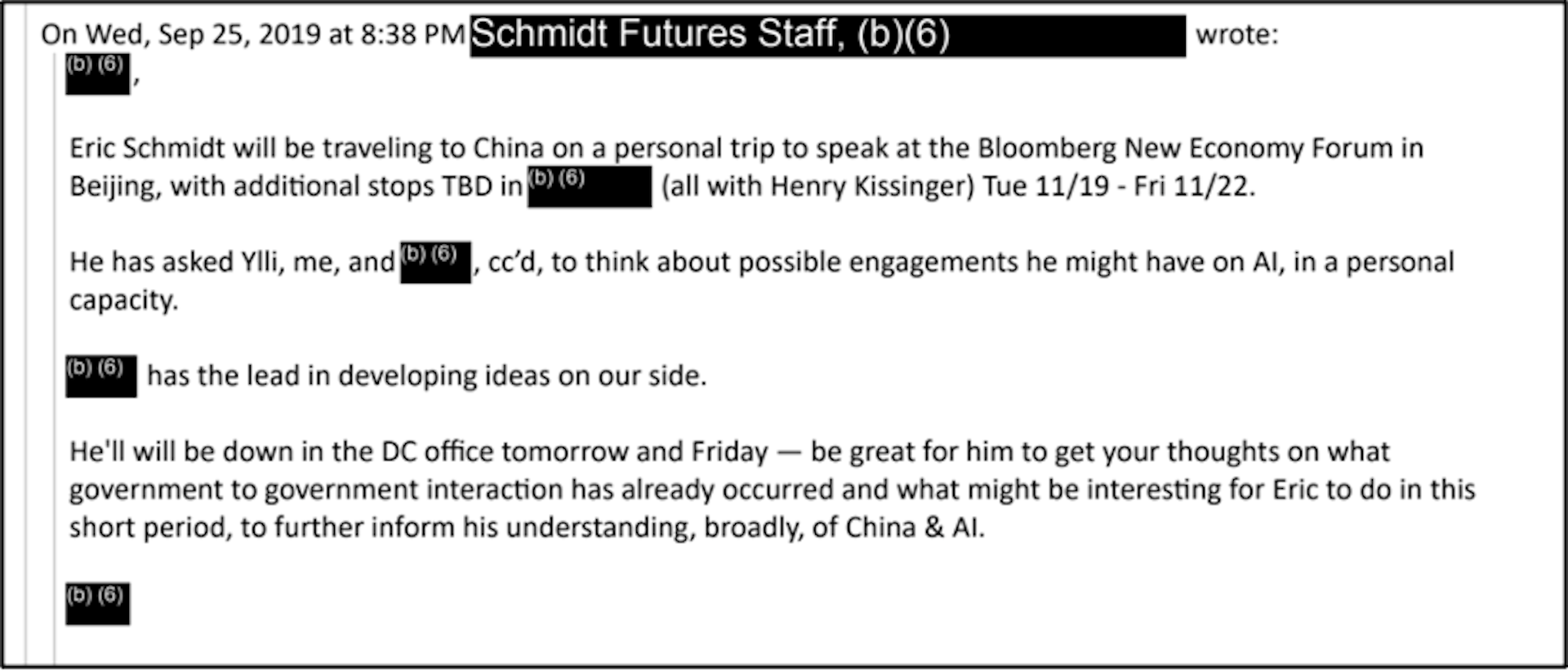
The research director replied the same day to say they would be “happy to help out.” The Schmidt Futures staffer then assigned a series of tasks, including writing a “one pager on interesting companies in Beijing,” following up with “past government contacts,” and adding to a “shared list of topics of discussion.” The names of those assigned to the tasks were redacted.
Spending government staff time to prepare Schmidt for a personal trip could run afoul of ethics rules. Schmidt and many other employees of NSCAI were categorized as Special Government Employees. According to the U.S. Justice Department, such employees may not direct or ask a subordinate to “use official time to perform activities other than those required in the performance of official duties.” They are also prohibited from using “public office for private gain” or the “private gain of friends, relatives, or persons with whom the employee is affiliated in a nongovernmental capacity.”
Flight records obtained by TTP show that Schmidt flew to China on Nov. 19, 2019, and returned on Nov. 24, extending the trip two days past the departure date provided to NSCAI staff. Schmidt’s complete agenda for the trip has never been disclosed, but press reports and other public records show that he met with at least two investors in Chinese AI companies and a former government official.
On Nov. 19, Schmidt dined with Kai-Fu Lee, the former head of Google China. (Lee, like Schmidt, was attending an economic forum in Beijing.) Lee left Google in 2009 to found Sinovation Ventures, an investment firm intended to help China catch up to the U.S. in AI innovation. In 2018, Lee’s company partnered with the Chinese government in pursuit of its mission to close the AI talent gap with the U.S.
Schmidt later met with China’s former deputy minister of foreign affairs, Fu Ying, according to a summary posted by the Center for International Security and Strategy at Tsinghua University in Beijing. According to the summary, Schmidt told Fu that the U.S. “should not treat China as an enemy, but as a competitor, and should allow China to develop artificial intelligence technology and applications.” Schmidt and Kissinger also joined Fu at a separate event in Beijing.
Schmidt also appeared at a “fireside chat” roundtable discussion with Sequoia Capital China founding partner Neil Shen, according to annual report for the Yale Center Beijing. In 2023, the House Select Committee on the Chinese Communist Party announced a probe into Shen’s company (now called HongShan) for its “significant U.S. dollar investments” in Chinese enterprises that contributed to human rights abuses, China’s military modernization, and “overall efforts to undermine U.S. technological leadership.”
